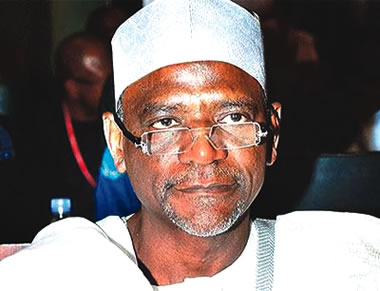
Abuja – The Minister of Education, Malam Adamu Adamu on Thursday said Nigeria must produce a workforce of skilled, efficient, highly mobile, adaptable and innovative people for a global market place.Malam Adamu Adamu, the Minister of Education
Adamu said this at the launching of the National Skills Qualifications Framework (NSQF) and presentation of provisional licences to awarding bodies including NABTEB, Nigerian Institute of Welding (NIW), Nigerian Institute of Building ( NIOB), Nigerian Society of Engineers and Institute for Tourism Professionals (ITP) held in Abuja .
These bodies are responsible for developing standards for qualifications and quality assurance for the awards of certificates for qualified and competent candidates.
He said the Federal Ministry of education was determined to place Technical and Vocational Education and Training (TVET) in proper perspective to ensure its products are able and available to perform their roles well.
He called on the National Board for Technical Education ( NBTE) to begin to look into quality, classification , brand and provide a model for ensuring quality assurance and standardisation.
“As part of its strategic plan , the ministry has determined the skills gap in the Nigerian educational system.
“ It is this gap that has helped make Nigerians graduates non-competitive in the global market place; and in order to progress, Nigeria must produce a workforce of skilled, efficient, highly mobile, adaptable and innovative people.
“The ministry is not unaware that in a changing global economy, the future lies in developing a highly skilled and mobile workforce.
“There is therefore the need to restructure our technical training and assessment processes to meet the emerging aspirations of a highly competitive changing global economy.”
The minister added that it would work closely with the Head of Service to incorporate the qualifications from the NSQF into the scheme of service of the federation.
aimed at meeting the aspirations of the Nigerian economy.
Earlier, Dr Masa’udu Kazaure, Executive Secretary, National Board for Technical Education (NBTE) said the initiative had provided a policy guidelines on skill training to improve product quality in both the formal and informal sectors.
Kazaure noted that the training had benefitted a lot in the area of motivating beneficiaries for better performance and service to the nation.
He said that through the programme, poverty and other social vices as well as rate of examination malpractice had drastically reduced, adding that the framework was aimed at promoting lifelong learning as well providing quality assurance and recognition.
According to him, the implementation of the NSQF is faced with some challenges that need to be tackled
“ Lack of skills’ policy and coordination which cuts across many MDAs, private sector and NGOs.
“Skilling and employment of Nigerian Youth is the priority agenda of government and so there is need to establish a council that will be responsible for coordination and development of skills and employment policy for Nigeria.
“ This should synchronise training with employment.”
He also called for skill development fund which would serve as a revolving fund with the participation of industry operators, government, NGOs and development partners.
He, therefore, called for collaboration among all stakeholders for the survival and credibility of the standards.
“ I will like to draw attention to the fact that the NSQF project is essentially a Nigerian Project. It is initiated, designed, developed and to be run by Nigerians and for the development of the country.
“For this reason we should consider our activities and contributions of the NSQF as a national and important assignment that is aimed at uplifting the TVET system for economic development. “
He, however, added that the present administration also had a stake as gainful employment was a major part of its cardinal programmes, to ensure the success of the programme.
Also, the Chairman, House Committee on Education and Services, Mr Aminu Goro promised to key into the initiative while making sure that the framework sees the light of the day and Nigerians would begin to see the benefits of all.
“This is a skill that will help to accelerate our technical progress and we all have a duty to make sure it dies not end up as an academic exercise.
“We will ensure we key into the initiative to have a technologically driven economy,” he said.
NQSF is a system for the development, classification and recognition of skills, knowledge, understanding and competencies acquired by individuals irrespective of where and how the training or skill was acquired.
The system gives a clear statement of what the learner must know or be able to do whether the learning takes place in a classroom, on-the-job, or informally.
The framework indicates the comparability of different qualifications and how one can progress from one level to another.(NAN)
END


Be the first to comment